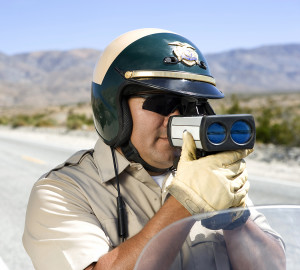 For a little change of pace, if you ever wondered about ticket quotas, let me tell you that by our latest count, twenty states have explicit laws banning traffic ticket quotas. And yet, the practice continues, even within some of those states. City, county and state budgets must be met, and a reliable target for revenue continues to be the motorist and truck driver. Here are just a few of the abuses recently uncovered in several states in 2019.
For a little change of pace, if you ever wondered about ticket quotas, let me tell you that by our latest count, twenty states have explicit laws banning traffic ticket quotas. And yet, the practice continues, even within some of those states. City, county and state budgets must be met, and a reliable target for revenue continues to be the motorist and truck driver. Here are just a few of the abuses recently uncovered in several states in 2019.
In Massachusetts, forty state troopers were caught claiming bogus overtime hours, inspired by a federally funded ticketing program that required each trooper to issue at least eight speeding tickets per shift. Failure to do so led in some cases to the trooper in question being prevented from earning overtime pay. Eight of the state police were indicted for embezzlement for their roles tied to the speed trap detail.
In Missouri, ticket quotas have kept State Attorney General Eric S. Schmitt busy. In June, he secured an admission from the city of Diamond that its chief of police required or encouraged his officers to issue a minimum number of traffic violations. One of the Diamond officers blew the whistle on the scheme to Schmitt, proving a violation of the state’s law that disallows a political subdivision or law enforcement agency from having a quota policy. Just a few months later, AG Schmitt charged the city of Marshfield for engaging in the same practice, referring to the speed trap ticket quota as, “Taxation by citation.”
In Texas, a Dallas officer was caught falsifying nearly 40 speeding tickets to meet the funding requirements of the National Highway Traffic Safety Administration’s (NHTSA) high-visibility enforcement grant program. He faces up to five years in prison, a $250,000 fine, and repayment of the overtime he took home as a result of writing 569 tickets over four months. The federal grant program so blatantly ties grant awards to ticketing activity that the National Motorist Association (NMA) sent a letter to Secretary of Transportation Elaine Chao in 2017 urging some reform. The lack of a meaningful response gave rise to the NMA’s anti-ticket-quota bill, the DETER Act, that is currently a focal point of lobbying efforts in Washington.
 In Ohio, the city of Independence fired a long-term police veteran after it suspected he was responsible for notifying the media about the town’s ticket quota actions. The officer, Lieutenant Leonard Mazzola, denied the accusation and is suing the mayor, police chief and law director. Mazzola earlier had complained internally about the quota policy – termed “a performance standard fundamental to effective policing” by the chief – that had a goal of reaching the issuance of 3,000 traffic tickets per year.
In Ohio, the city of Independence fired a long-term police veteran after it suspected he was responsible for notifying the media about the town’s ticket quota actions. The officer, Lieutenant Leonard Mazzola, denied the accusation and is suing the mayor, police chief and law director. Mazzola earlier had complained internally about the quota policy – termed “a performance standard fundamental to effective policing” by the chief – that had a goal of reaching the issuance of 3,000 traffic tickets per year.
In Florida, in another whistle-blower case (and indicator that ticket quotas undermine police morale), the city of Hialeah has been accused of punishing an officer for failing to issue a prescribed number of tickets per day. Florida statutes prohibit a traffic enforcement agency from establishing a traffic citation quota. Ticket quotas, whose existence is so often denied, are real. The victims are the motorists who bear the brunt of overly aggressive, and sometimes fraudulent, enforcement activities, and often the police officers whose job performance is threatened by policies forcing them to write tickets they otherwise might not issue.
If you want to look up some of the laws addressing ticket quotas in various states, here is a partial list of those states and their laws against ticket quotas: Arkansas Code (12-6-302); California Vehicle Code (41602); Connecticut General Statutes (29-2b); Florida Code (316.640); Illinois Compiled Statutes (2610/24); Iowa Code (321.492A); Louisiana Revised Statutes (40:2401.1); Michigan Compiled Laws (257.750); Minnesota Statutes (169.985); Missouri Statutes (304.125); Montana Code (46-6-420); New Jersey Statutes (40A:14-181.1); North Carolina Statutes (20-187.3); Nebraska Statutes (48-235); New York Labor Code (215-A); Pennsylvania Statutes (Title 71 P.S. 2001); Rhode Island Laws (31-27-25); South Carolina Code of Laws (23-1-245); Tennessee Code (39-16-516); and Wisconsin Statutes (349.025).
LAST MILE DELIVERIES
Just as the Frisbee took the world by storm back in the late 50s, “Last Mile Deliveries” are the fastest growing segment of the trucking industry. Companies such as CH Robinson, Ryder and now J.B. Hunt are really jumping on the bandwagon. J.B. Hunt acquired the assets of RDI Last Mile Co. on December 31, marking the company’s latest purchase of a final-mile service. CEO John Roberts said the company sees opportunity in the growing field of home delivery of large items. “Growing our final-mile delivery capabilities is a priority, and the acquisition of RDI further extends our expertise in furniture delivery,” Roberts said in a statement. RDI was founded in 1987 and, according to J.B. Hunt, generates annual revenues of $35 million. RDI provides home delivery services of big and bulky products in the Northeast. J.B. Hunt said RDI typically uses contract carriers to make furniture deliveries. RDI is the company’s third acquisition in as many years. J.B. Hunt acquired Cory 1st Choice Home Delivery in 2019 and Special Logistics Dedicated in 2017. Company officials said J.B. Hunt’s Final Mile Services will grow to include more than 104 locations and 3.2 million sq. ft. of warehouse and facilities space.
